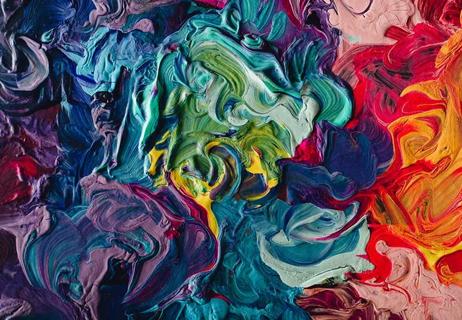A dermatologist addresses those specks on your skin

Ever wonder about those tiny little dots on your body? Why do you get freckles? Why do some people tend to have more? And can you really have matching freckles with your bestie?
These little specks on your skin are usually harmless and most commonly start to appear on children and teens. Freckles can clue you in about how your skin has reacted to sun, age and even your genetics. (But even if you weren’t genetically wired to be freckly, makeup and tattoos can usually give you the fresh face of freckles you’ve always dreamed of. Who knew?)
Advertisement
Cleveland Clinic is a non-profit academic medical center. Advertising on our site helps support our mission. We do not endorse non-Cleveland Clinic products or services. Policy
Here dermatologist, Melissa Piliang, MD, offers some truths about naturally occurring freckles.
A: When your skin is exposed to the sun, your body responds by making melanin pigment. That’s responsible for the color of your skin and how easily you tan. With a freckle (aka an ephelides), the body makes melanin pigment, but it makes a little too much in one area – resulting in a freckle! In other words, freckles are triggered by the sun, but it depends on the type and amount of melanin levels in your skin. People with blonde or red hair and fair skin tend to have melanin that makes them more prone to getting freckles.
A: Nope! Most people with freckles usually start to see them come out around age 2 or 3 and continue into young adulthood. Freckles are from the sun – almost like a modified tan. Most people with freckles will notice that they fade in the wintertime when there is less sun exposure.
A: Actually no, you tend to get fewer the older you get. Your skin doesn’t respond to the sun the same way as it did when you were younger. You can, however, get solar lentigines (also known as sun spots or age spots), which are sun-induced brown spots, usually appearing as a patch of darken skin. They typically appear on body areas that have a history of repeated sun exposure ― like your face, shoulders, chest or back of your hands. They’re most common after age 40 but could appear in younger people depending on UV exposure history.
Advertisement
Solar lentigines, rather than being a tanning response like a freckle, show sun damage when looked at through a microscope. They are a skin reaction from chronic sun exposure.
A: Freckles have to do with the type and amount of melanin in the skin. Typically, people with red or blonde hair or light colored skin have more “pheomelanin,” which is associated with freckles.
A: If you’ve noticed for years that you tend to have freckles in the summer and that they fade in the winter, those types of freckles probably won’t turn into skin cancer. But keep in mind that normal freckles are light brown and completely flat. If you have new spots that are raised, that bleed or are darker in color (like blue or black) then get them checked out. Regular freckles are 1 to 2 millimeters, so keep an eye out for anything that grows.
A: Freckles are just the increased melanin pigment in the outer layer of the skin. Moles, on the other hand, are from the increased amount of melanocytes. Those are the same skin cells that produce melanin, but are typically found at the bottom layer of the skin. Moles are slightly raised and generally bigger than most freckles. But because moles have active cells, it’s a good idea to keep an eye out for any changes.
A: No, because freckles are harmless. But realize they are a sign that you’ve had sun damage to your skin. You should always wear sunscreen, but particularly if you have light or red hair or are fair-skinned.
A: Remember that freckles are triggered by the sun. So if you’d like to prevent more from appearing on your skin, follow these sun safety guidelines:
A: Freckles should fade when you’re not in the sun and you get fewer of them as you age. But there are things that can help freckles fade faster if you’re concerned about how they look. Glycolic acid and other alpha hydroxy acids help to remove the outer layer of the skin where the discoloration resides. You can also ask your dermatologist about certain chemical peels and laser treatments that might also help to fade freckles. There are even some topical prescription treatments available as well. Keep in mind, though, that you can fade freckles ― but not completely remove them.
Advertisement
Advertisement
Learn more about our editorial process.
Advertisement

Not all rainbows have gold at the end — the ones our bodies produce offer insight into our health

Early attention to skin wounds can help minimize their appearance later

Several conditions, like vitiligo and fungal infection, can cause a loss of pigmentation, leading to white spots or patches on your skin

Moisturizing, running a humidifier and adjusting your showers may help keep itchiness and irritation at bay

‘Zit stickers’ can help heal a new or popped pimple, but they’re limited when it comes to managing acne

Glycolic acid benefits skin tone, texture and pigmentation by exfoliating dead skin

At-home treatments and lifestyle changes may help ease the symptoms and improve the appearance of varicose veins — but they aren’t a cure

Most rashes aren’t dangerous — but it’s worth talking to your pregnancy provider about them

Start having sex about 72 hours before ovulation, then at least every other day during your fertile window

Attachment theory suggests that your earliest relationships shape connections throughout your life

It isn’t a recognized mental health disorder, but research shows that problematic social media use can negatively affect your mental health, self-esteem and sleep